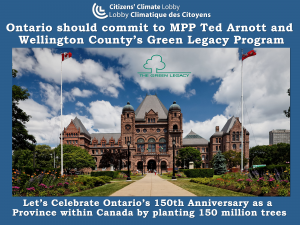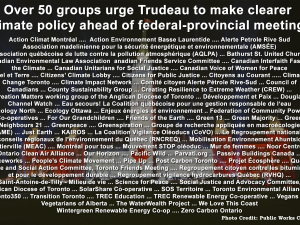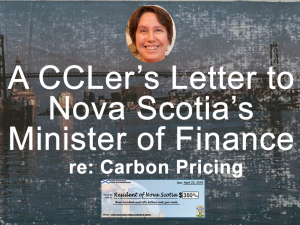On February 16, 2024, an update on the Clean Electricity Regulations (CER) was released. Thereafter, Canadians were invited to give feedback. Our volunteers used the following toolkit and the letter below to guide them in their feedback by March 15. Dear Government of Canada, I write to express my deep concerns regarding the current state of the Clean Energy Regulations (CER) and their alignment with the urgent need to address the challenges posed by climate change. It is evident that the current trajectory falls short of meeting the imperative set forth by the physics of our planet. Happily, the synthesis report is quite clear that there is sufficient global capital to rapidly reduce greenhouse gas pollution if existing barriers are reduced. Increasing finance to climate investments is important to achieve global climate goals. Governments, through public funding and clear signals to investors, are key in reducing these barriers. Clear regulations and redirecting financial flows to clean energy will reduce these barriers in addition to a robust price on carbon price More facts “Facts do not cease to exist because they are ignored.” ― Aldous Huxley. Apprehensions Firstly, the proposed emission performance standard set to take effect only in 2035 is alarmingly deferred. Immediate action is imperative, necessitating interim targets of escalating stringency to propel the electricity sector towards net-zero emissions. Secondly, the allowance for fossil gas plants with carbon capture to operate beyond 2035 presents a precarious gamble. The industry’s own acknowledgment of uncertainties surrounding carbon capture efficacy further underscores the risks of such endeavors. Thirdly, the delay in the application of the CER for newer generating facilities contracted before January 1, 2025, inadvertently incentivizes the construction of new fossil gas generation facilities, contrary to the imperative for rapid transition. Furthermore, the proposed extension of the operational lifespan of existing unabated gas plants contradicts the trajectory required to achieve a net-zero grid by 2035. Lastly, the allowance for noncompliant operators to utilize offsets is fraught with risks, given the inherent flaws and uncertainties surrounding many offset mechanisms observed thus far. In conclusion, it is evident that the current trajectory outlined in the CER falls short of the urgent action required to address the climate crisis. As we navigate these pivotal times, know that Citizens’ Climate Lobby volunteers from across Canada are keen to help build the political will for a liveable world and truly appreciate all that you are doing. Sincerely,
The Urgency
The need to accelerate the pace of decarbonization has grown more urgent as planetary warming shows no signs of abating. Last July, the Earth experienced four days in a row of record-shattering temperatures. The EU’s Copernicus Climate Change Service reported in February that during the previous 12 months, global temperatures were 1.5 degrees Celsius warmer than the pre-industrial era, breaching, at least for a year, a dangerous threshold for warming. Increased temperatures are melting Greenland’s ice so fast that the melt off threatens to shut down the Atlantic Meridional Overturning Circulation which contains the Gulf Stream that keeps much of Europe from freezing over.
The IPCC Synthesis Report Conclusions
In March 2023, the Intergovernmental Panel on Climate Change released the synthesis report for it is seventh cycle of assessment reports. At that time, United Nations Secretary-General António Guterres announced a plan to massively fast-track climate action. He was clear that emissions need to go down now and be cut by almost half by 2030, if this goal has any chance of being achieved. He has proposed a G-20 Climate Solidarity Pact that includes an Acceleration Agenda. This Agenda calls for an end to coal, net-zero electricity generation by 2035 for all developed countries and 2040 for the rest of the world, and a stop to all licensing or funding of new oil and gas, and any expansion of existing oil and gas reserves.
Despite the clarity provided by the Intergovernmental Panel on Climate Change as well as the International Energy Agency, and UNFCCC in addition to the the RBC Climate Action Institute, Dunsky Energy + Climate Advisors, the Sustainability Solutions Group and the Ontario Energy Board, which all underscored the necessity for profound decarbonization of the electricity sector of all economies, we find ourselves in a disconcerting position over eight years later. The persistence of efforts to construct new fossil-fuel fired plants underscores a concerning inertia within the industry. Moreover, the reliance on carbon capture as a panacea for continued fossil fuel use appears increasingly uncertain, with no commercially viable models currently in operation globally.
My apprehensions regarding the recent updates to the Clean Energy Regulations are manifold.
<Your name and city of residence>
Open Letter: Clean Electricity Regulations
Home » CCL Canada News » Open Letter: Clean Electricity Regulations







